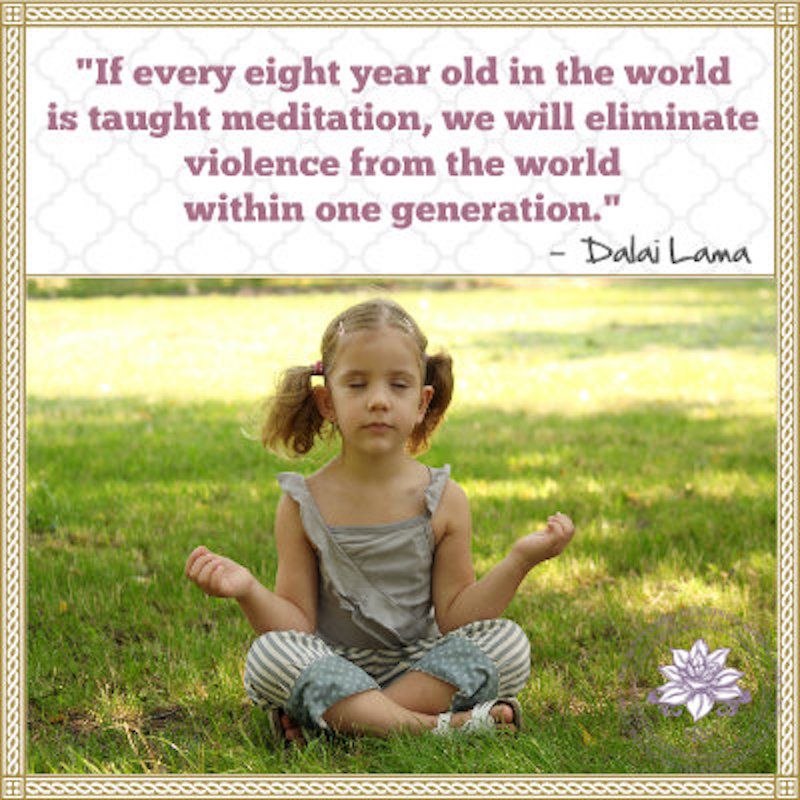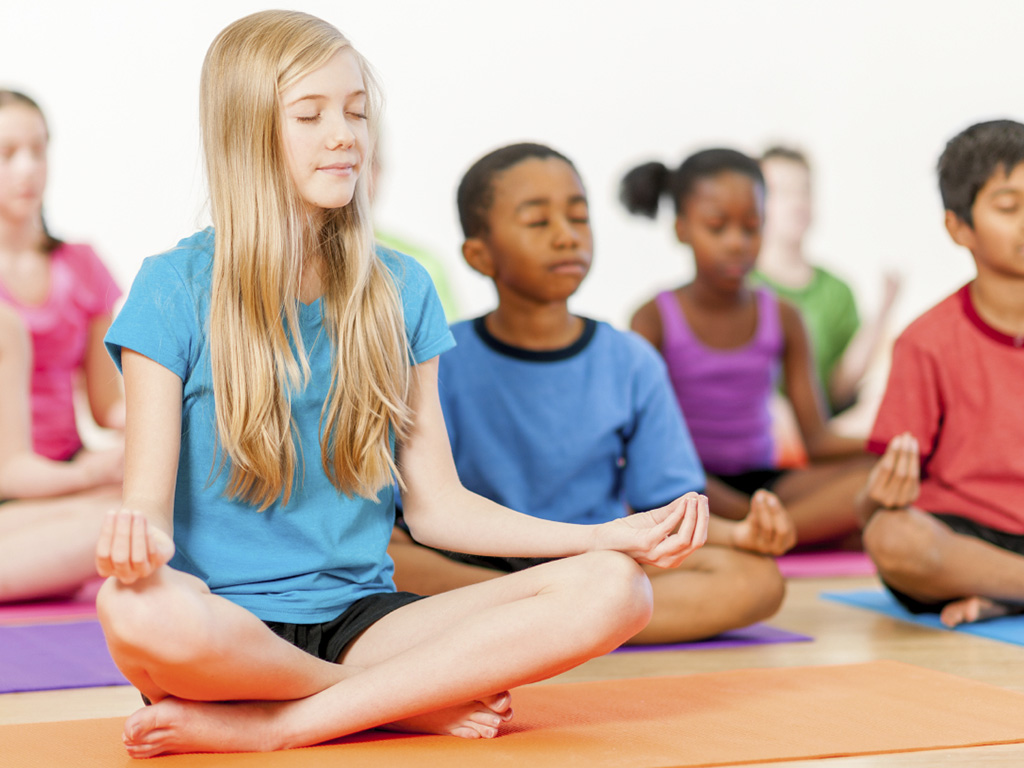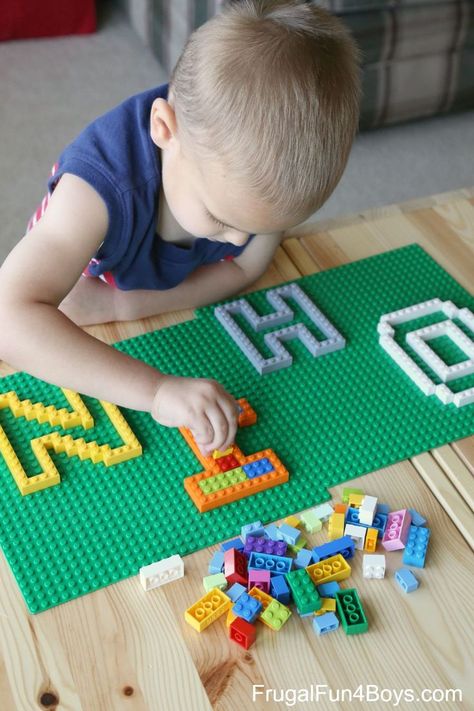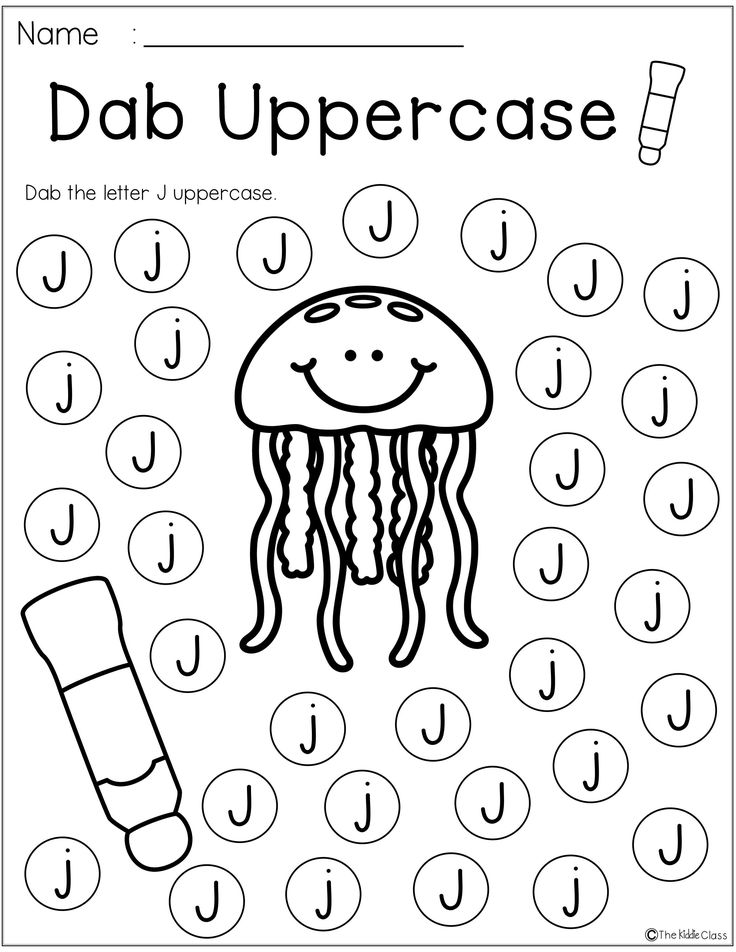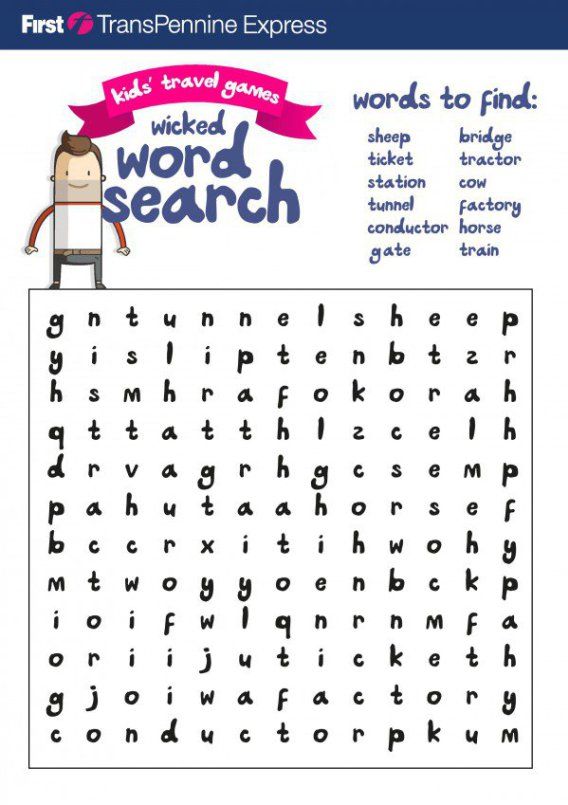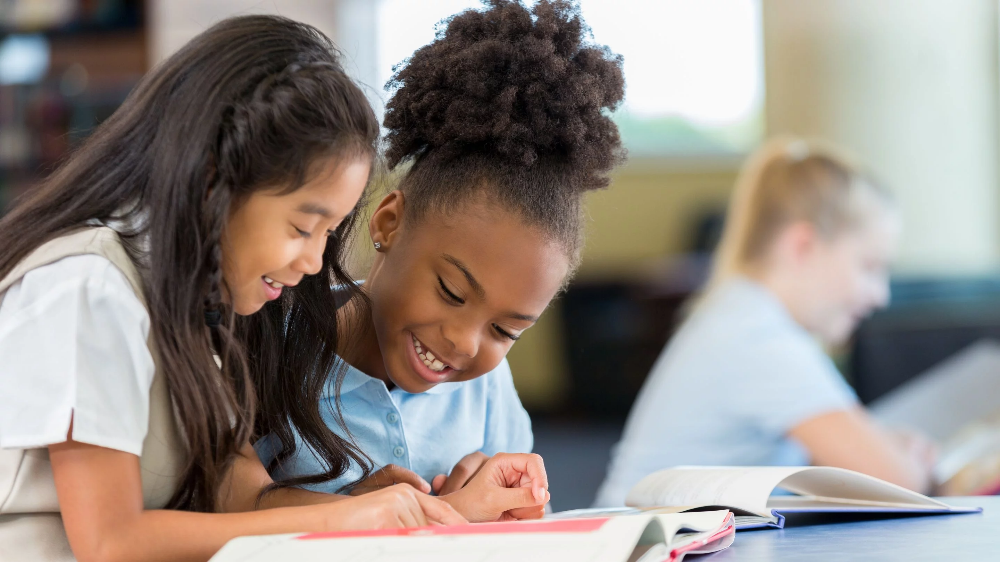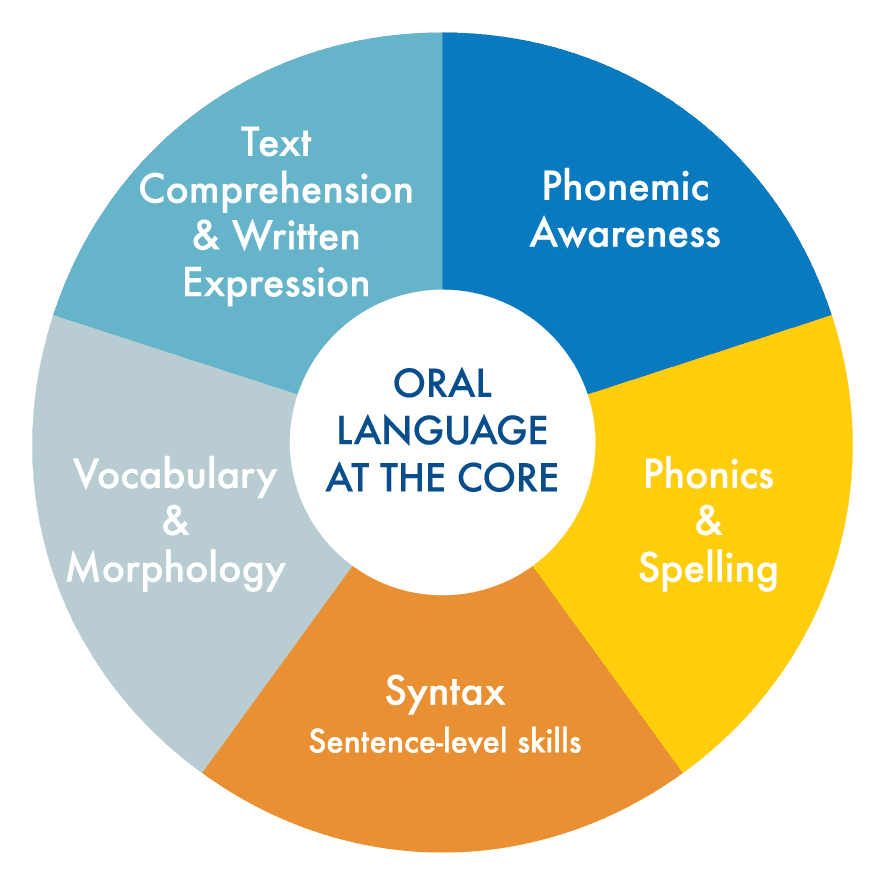Calm kids meditation
The Complete Guide — Calm Blog
Age isn’t a determining factor for anxiety.
In addition to the estimated 48 million adults who struggle with anxiety disorders every year, approximately 5.8 million children do as well, according to the Centers for Disease Control and Prevention.
However, children often don’t have the ability to verbalize their feelings. For parents, understanding what childhood anxiety looks like can prove to be the biggest challenge in the road to supporting little ones.
What does childhood anxiety look like?While adults tend to ruminate on anxious thoughts, psychologist Dr. Renee DeBoard-Lucas, co-founder of Trauma Resilience Understanding & Education (TRUE) Center, said that children often show anxiety in “physical ways.”
Rather than verbalize their feelings, “really young and school-age kids are more likely to have headaches, stomachaches, trouble sleeping, and other physical concerns,” she said. “You may also see kids and teens avoiding things that may be new, challenging, or make them feel scared. ”
They may also make comments that allude to anxiety, such as:
“My friend said they can’t play. They must be mad at me.”
“I’ll never learn how to ride my bike.”
“I’m going to fail my test tomorrow.”
Other times, they may seek reassurance by asking questions like, “Are we going to be late?” “Are things going to be OK?” “Are you sure?”
It’s also important to note that in children, anxiety can manifest both alone or alongside other conditions. More than one-third of children who suffer from anxiety also have behavioral problems and about one-third also have depression, according to data from the CDC.
How can meditation help children with anxiety?A recent study by Calm’s science team found that parents turn to meditation as a way to help their little ones relax, though most – 75% – rely on it to improve sleep.
DeBoard-Lucas said parents can broaden their kids’ usage of meditation, as the practice can “help all kids become more aware of what is happening in their bodies. ”
”
“Increasing awareness of their body and their emotions is a starting point for learning to regulate those emotions,” she continued. “It’s empowering for kids to learn that they can have control over what is happening in their bodies or what they do with their emotions.”
Meditation can also be useful and beneficial for children who are on the autism spectrum, DeBoard-Lucas added.
“Meditation can be a tool for managing situations that are overwhelming or overload their senses,” she said. “Including a space for meditating in the classroom can provide a way to calm down and then rejoin the group.”
How does meditation differ for children?“Adults tend to think of a practice as something that should be quiet,” DeBoard-Lucas said. “They may be more aware of the outcomes they’re looking for through meditation – relaxation, a calmer mind, [or] increased focus. Meditation for kids is less quiet and is more active.”
Children most likely won’t sit still for long periods of time or always keep their focus. One to two minutes of continuous practice can be viewed as a big win. Practicing with your child can be a good way to further entice them into a practice, and doing it at the same time every day can help integrate it into a daily routine.
One to two minutes of continuous practice can be viewed as a big win. Practicing with your child can be a good way to further entice them into a practice, and doing it at the same time every day can help integrate it into a daily routine.
“If you have a young kid, have them teach a stuffed animal or doll how to meditate,” DeBoard-Lucas suggested. Kids like being teachers and it helps reinforce their own learning.”
How can I help my child meditate?Practicing with your child can also be helpful for them. Get comfortable and help ground your child by reminding them that they’re trying to calm their body, DeBoard-Lucas said. Encourage them to feel their feet on the ground, and maybe ask them to close their eyes, particularly whenever they begin to disengage. Don’t hesitate to speak up if you sense that their practice is going awry – and making it fun can help, too. Saying something like, “Oops, your eyes are open! Let’s see who can close them fastest,” is one way to help them recenter, DeBoard-Lucas suggested.
And don’t get discouraged if the practice doesn’t look the way you thought it would; a child is unlikely to sit still for a long period of time – if they are able to sit still at all. “A ‘successful’ meditation practice will likely be shorter and may be more active than we typically think of in meditation for adults,” DeBoard said.
What does that mean? DeBoard-Lucas shared some additional tips for encouraging children to meditate and practice deep breathing, including asking them to:
Pretend to blow out candles
Breathe like a lion
Imagine a fantastical journey
Most importantly, DeBoard-Lucas said, have patience.
“You’re not going to see an overnight change in calming abilities,” she noted. “It’s a ‘practice’ for a reason.”
The Calm app offers guided meditations, mindfulness programs, breathing exercises, and bedtime stories that can help you unwind.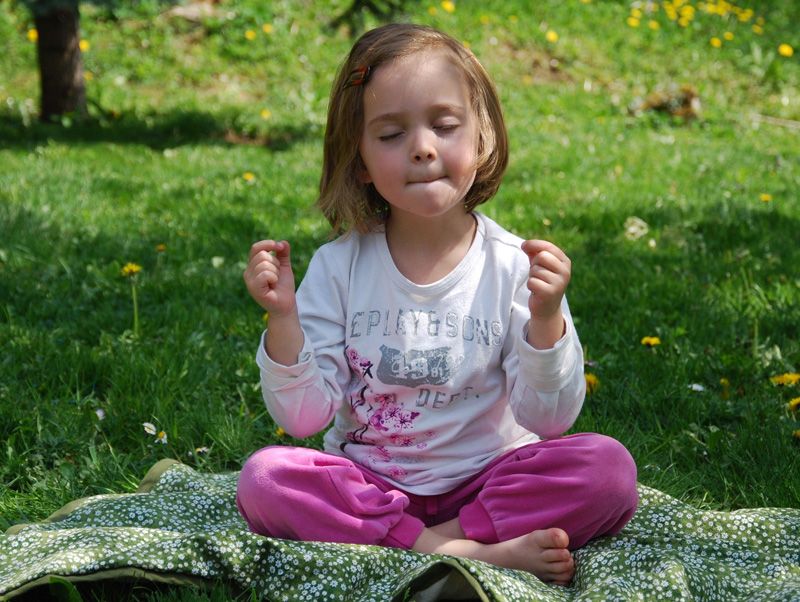 Feel better, inside and out.
Feel better, inside and out.
Calm Kids on the App Store
Guided mindfulness meditations created to help children (3-12 years old) discover the path towards a calm, focused and happy life. They will help your child become more focused and attentive, help maintain psychological well-being, alleviate anxiety and stress, integrate thoughts and emotions, as well as encourage creativity. Social skills, personal values and healthy boundaries are also taught through our imaginative, engaging stories and mindfulness tools. We offer all this through our breathing and relaxation exercises, fun and magical trips to visit adorable animal friends, rides on a flying carpet, visits to castles in the clouds, by making friends with fairies or just simply blowing big bubbles.
Our meditation stories were created in collaboration with Mellisa Dormoy, founder of ShambalaKids school of meditation and mindfulness, guided imagery expert and best-selling author.
***The app contains 5 entirely FREE meditations.***
*** A FEW MINUTES A DAY TO START SEEING THE BENEFITS IN CHILDREN
Give your children the benefits of mindfulness through compelling and imaginative meditation stories, equipping them with the skills and techniques to help maintain a healthy mental wellbeing for life.
- Let go of worrying thoughts
- Manage stress and social anxiety
- Learn to relax and calm down after an active day
- Remove anxiety and stress from the bedtime routine
- Improve focus and attention at school/nursery and at home
- Improve concentration, including for ADHD and hyperactivity
- Improve behavior, relationships and promote a positive mental attitude
- Develop emotional intelligence and creativity
- Increase self-esteem
- Increase mindfulness and self-awareness
- Learn values through fun and engaging stories
***FIND MEDITATIONS MATCHING EVERY CHILD’S NEEDS AND MOOD
Each mindfulness meditation has been created to support a range of overarching themes, purposefully chosen to suit the unique needs of individual children as well as different situations, circumstances and times within a day, including natural solutions for hyperactive and ADHD children.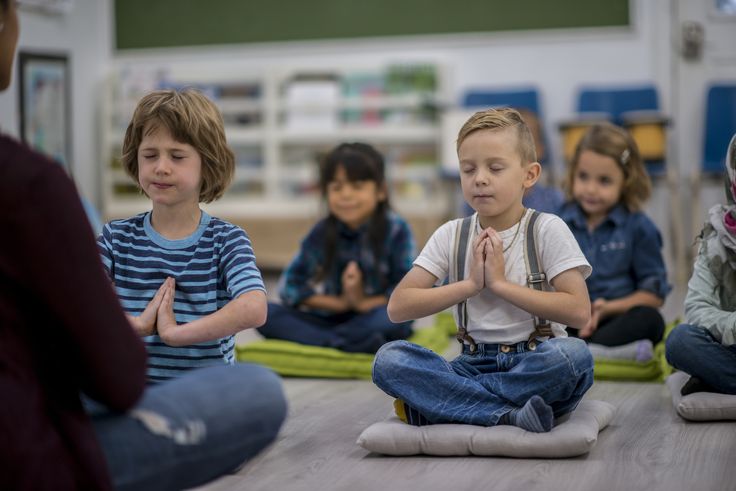
BEDTIME (12)
Teach kids to calm their bodies and minds through relaxing meditations, designed to ease them into a restful state and improve the quality of sleep. Create a positive night time routine to prevent bedtime battles.
MAGIC JOURNEY (8)
Take kids on an imaginative, vivid and magical journey to help them rest and replenish after a stressful and tiring day. Create relaxing, safe and inspiring worlds they can close their eyes and travel back to anytime they require.
CALM (7)
Teach children to use their imagination to explore the wonders of the world around them, alleviating worries, sadness and stress by nurturing and enjoying quiet moments of reflection and perspective within. When things get overwhelming, these tools create a time out, helping to soothe and reduce anxiety levels in just a few minutes.
EMOTIONS (9)
Guide children to recognise and manage emotions such as anger, fear and worry in a healthy and reflective way. Equip them with tools and strategies to remain calm and in control, allowing them to understand, accept and find peace with their feelings.
LOVE AND KINDNESS (9)
Nurture kindness, compassion, love and peace from within. Help kids to see how much they are loved and empower them to find strength from within. Teach them to love themselves and help them to develop more understanding relationships with others.
FOCUS (5)
Help children with focus and concentration through mindfulness, determination and self-awareness, at home and at school.
***SUBSCRIPTION PRICING AND TERMS
- Monthly membership auto-renews for USD 4.99 per month
- Yearly plan membership auto-renews for USD 39.99 per year
NEED HELP? Contact us at [email protected].
Privacy Policy: www.iubenda.com/privacy-policy/26520312
Terms & Conditions: www.iubenda.com/terms-and-conditions/26520312
14 meditations for young children
14 playful meditations to help young children calm down and balance.
It is not natural for children to meditate.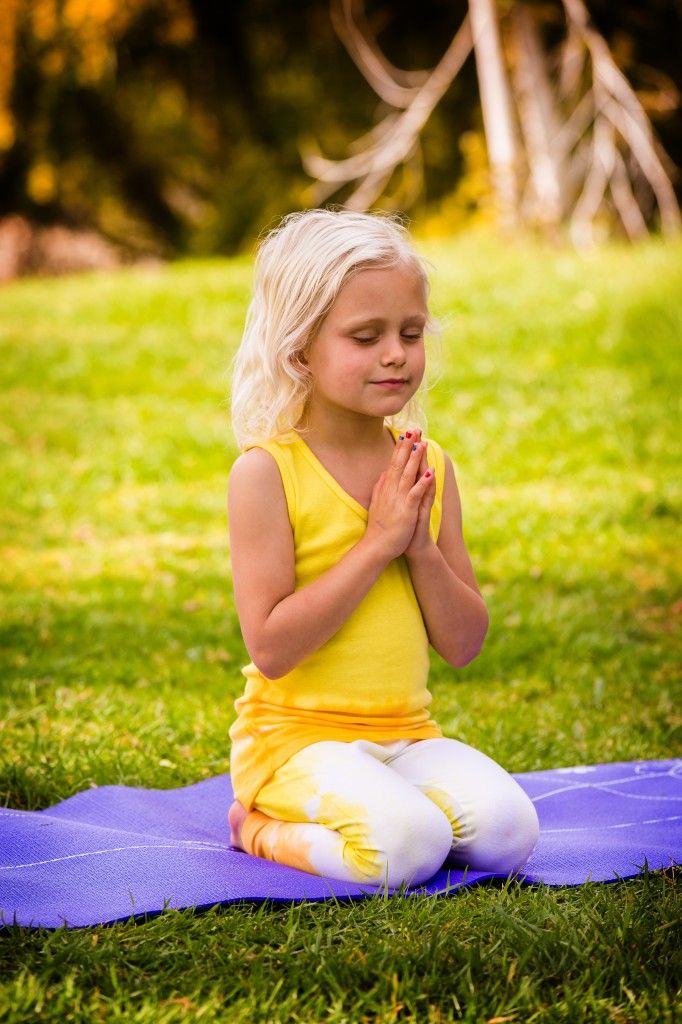 They passionately explore and experience the world around them in every possible way. Calmness, it may seem, is completely alien to them.
They passionately explore and experience the world around them in every possible way. Calmness, it may seem, is completely alien to them.
But even children have stress in their lives (most often because we, role models have stress, so adults really need to meditate more), and meditation can teach them not to forget to enjoy small joys and feel a moment of happiness as it is.
Meditation is not an achievement
Our society is always setting goals, but let's try to think of meditation not as a way to achieve inner peace, but rather as an opportunity to enjoy the journey and open our eyes to the beautiful world around us - and within. Just to let yourself be.
Here are 14 meditations for young children to try.
1. Third eye
Lay the child on the floor and put a small stone, glass or crystal on his forehead. Ask to think about it, imagine its color or multicolor, feel the warmth or coolness, its weight and other qualities.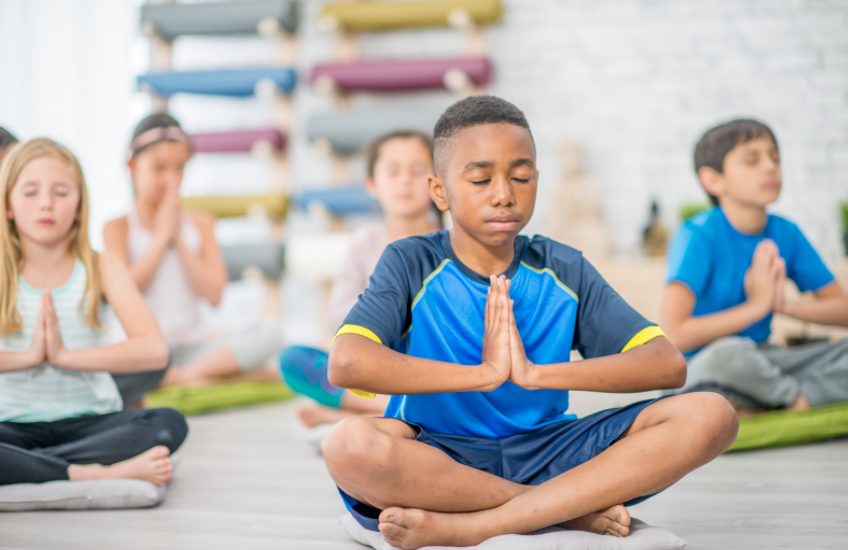
The magic stone will help you to be more calm and relaxed... Breathe and let its magic slowly penetrate your body and fill you all the way to your fingertips.
If you are tired of lying down, try to take different postures without dropping the stone and without ceasing to be aware of it. You can try to stand in a half-bridge, make a "birch" or throw your legs over your head.
2. Stop and listen
For this game, you will need a Tibetan singing bowl or a bell that lasts long enough. Let the children move freely around the room, but as soon as the bowl or bell sounds, they should stop, freeze and close their eyes. Let them listen to the sound very carefully, and only when it finally dries up, they begin to move again.
3. Silent bell
Sit in a tight circle with the children and blow a bell (or several) around. Let each child ring the bell if they want and listen to the sound.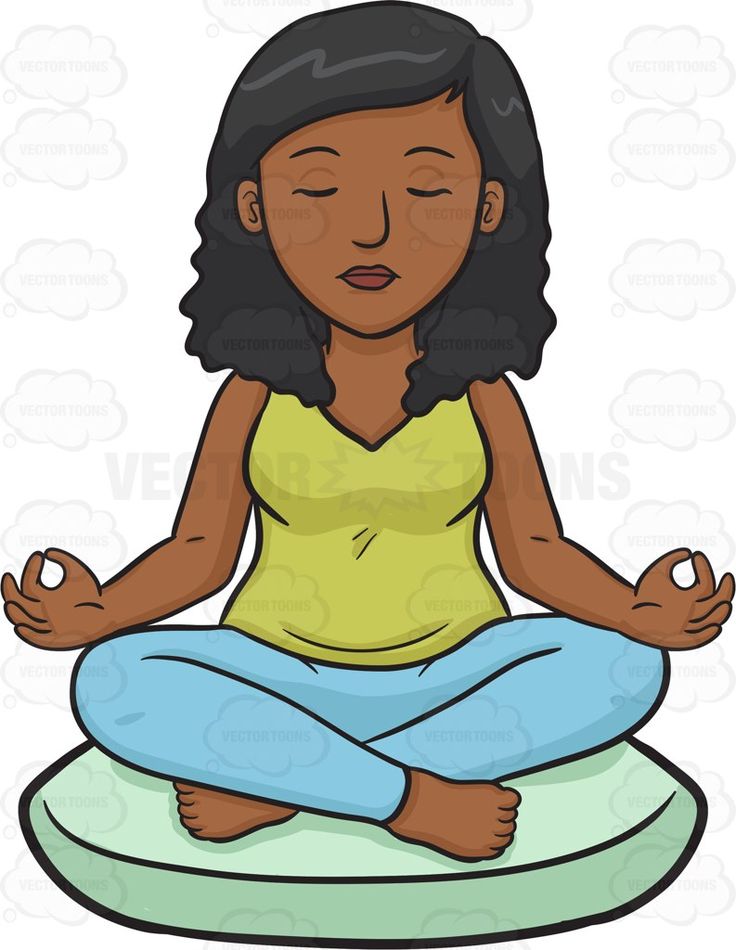 Then try to pass the bell so that it doesn't ring. Show the children how to do this very gently and quietly. This magically calms the children and prepares them for relaxation. You can do it together, passing each other.
Then try to pass the bell so that it doesn't ring. Show the children how to do this very gently and quietly. This magically calms the children and prepares them for relaxation. You can do it together, passing each other.
Children are children, so you may have to repeat the game several times before they realize that it is not necessary to call. If the game becomes too easy, pass the bell to someone who is sitting further from you - for this you will need to get up and approach, still not breaking the silence.
4. Pass the fire
The same exercise can be done with a candle and move smoothly and slowly. So that the flame does not go out.
5. Bell circle
Sit in a circle and close your eyes. Have one child hold the bell and walk slowly around the outside of the circle without ringing. Then, going up to someone he chooses, he softly rings over his ear, gives the bell and sits down in his place.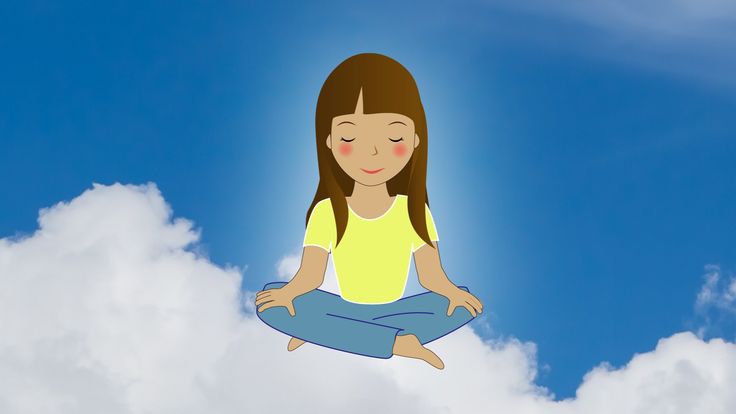
The game continues like this for several minutes, until you allow the children to open their eyes and see that everyone has changed places, but the circle remains intact.
And silently walking around, and sitting quietly in a circle, waiting for the bell over the ear, is very concentrating and calms the children.
6. Zoo-paradise
A good children's game to try and memorize the poses of all kinds of animals. It brings calmness, love of silence and self-control. For her, you will also need a Tibetan bowl or a long-sounding bell.
Designate a yogic animal, or have the children take turns choosing one, and have them move around the room imitating the movements and sounds of that animal. When children hear a sound, they should freeze in this animal pose and remain motionless until the bowl stops singing.
7. How quiet
In this game, children need to stay motionless for an unusually long time.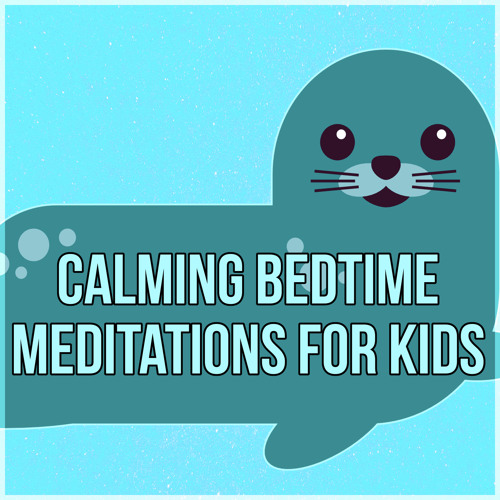 Which is very good for the ability to listen and concentrate. You will need a Tibetan singing bowl and blindfolds.
Which is very good for the ability to listen and concentrate. You will need a Tibetan singing bowl and blindfolds.
Ask the children to lie on the floor with their arms at their sides and cover their eyes (or turn off the lights). Tell them that the bowl will sing and they should listen very carefully. When the bowl stops, they will need to carefully place their hands on their stomachs. When everyone has done this, the bowl will sing again, and after stopping, they will again need to stretch their arms. What a peaceful and quiet class of children you have! Until they run away, of course.
8. Sleeping elves and fairies
Put on relaxing music and arm yourself with fairy dust. Have all children rest in Child's Pose (knees under, relaxed arms extended along the body to the feet). Each of them is a fairy or an elf. Walk around and lightly touch their backs with your fingertips, coating them with magical fairy dust. She will give them the magical power to stay as still as possible.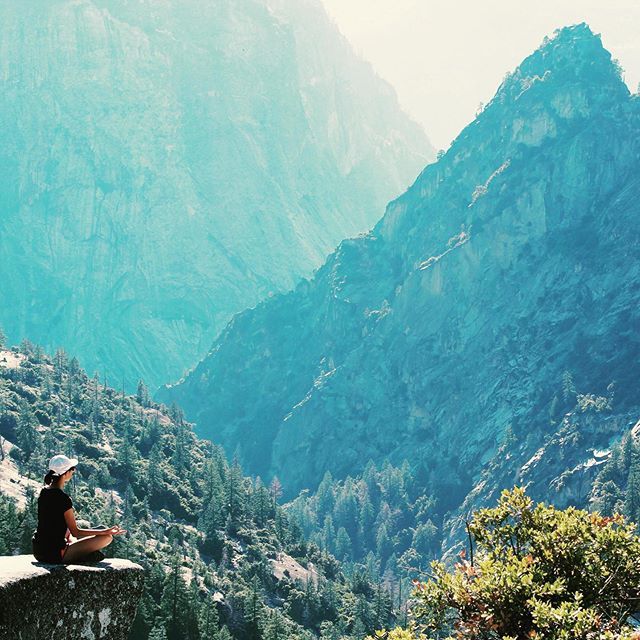 Who will last longer?
Who will last longer?
9. Calm water
Everyone lies on the floor motionless. If someone moves, he will have to step aside. In this game, we are not just saying “do not move”, but rather we are inviting you to get involved in motionless lying - this will be more spiritual.
10. I see beauty
Walk around the classroom, around the room, down the street, or in the park. Let the children stop when they themselves feel right and look around for beauty:
Look for beauty in front of you and say softly, "I see beauty in front of me."
Look back, find something beautiful, and quietly say, "I see beauty behind you."
Continue like this - right, left, up and down.
11. Walking across the sky
This meditation game is safer to do in pairs outside. Let one of the children hold a small mirror under his eyes, turned up to the sky, and the second one leads him.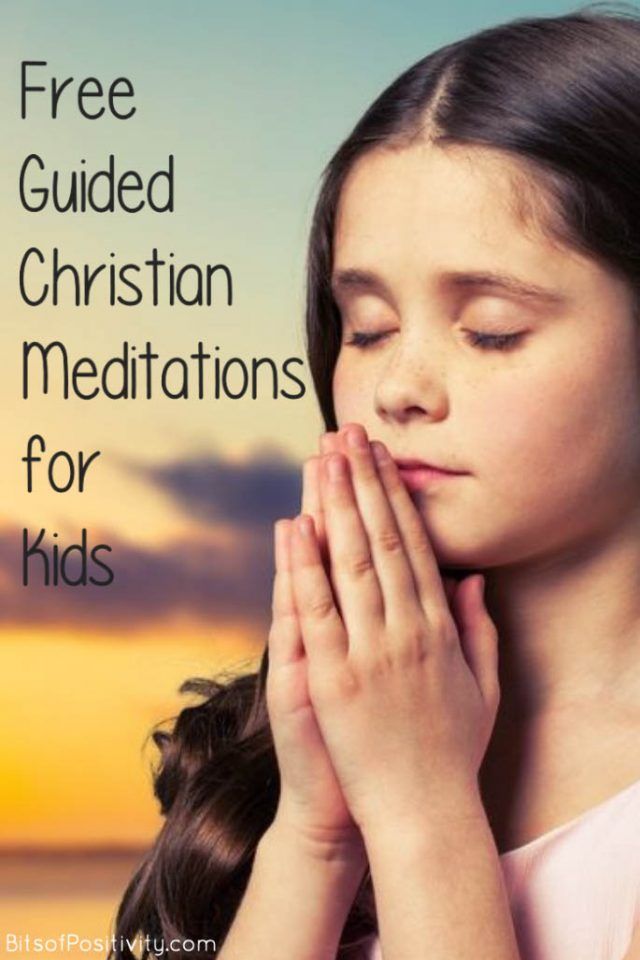 When you walk with a mirror to your eyes, it really looks like you are walking on clouds: you have a completely different perspective and your eyes open to a whole new world.
When you walk with a mirror to your eyes, it really looks like you are walking on clouds: you have a completely different perspective and your eyes open to a whole new world.
12. Breath of the ocean
Sit up straight or lie down. Close your ears so that nothing can be heard outside. Now breathe deeply and listen carefully. You will hear the sound of the ocean in your breath.
Listen to the waves come and go and let yourself relax completely.
13. Find a center
Can be done sitting or lying down. Lean a little to the right, a little to the left, back and forth until you find your center, a position where you feel balanced. Now close your eyes and imagine this center extending from the soles of your feet up your spine to the top of your head. Breathe into this center and see what happens.
14. Buddha board
This is a special board on which you can draw or write with water.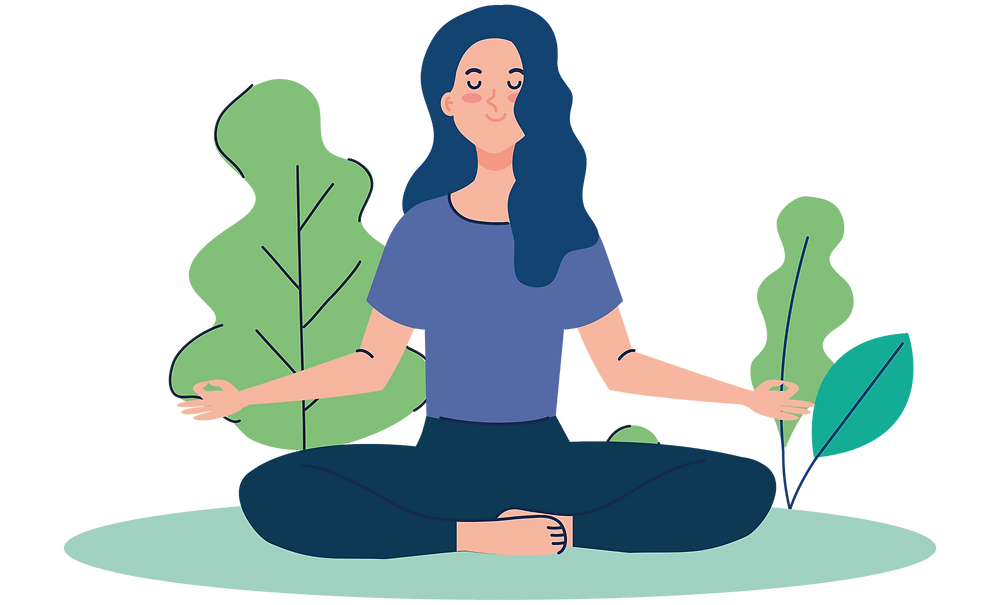 The water evaporates from the surface in about a minute, the words or picture disappear. They are sold ready-made, but in principle you can do it on dry pavement with a wet brush, on a blackboard, on a table.
The water evaporates from the surface in about a minute, the words or picture disappear. They are sold ready-made, but in principle you can do it on dry pavement with a wet brush, on a blackboard, on a table.
The Buddha taught that nothing is permanent, that things don't last forever, and the board illustrates this in practice. Each child can draw something on the board, but first the previous creation must evaporate and make way.
By practicing meditation games like this, we can more easily engage children in a state of mindfulness.
Experiment, but don't take it all too seriously, don't try to achieve any special states of mind. Life is beautiful and full just the way it is, and meditation is perhaps just a way to bring it back to our attention.
Meditation for Children: Child Mindfulness, Deep Concentration, Soothing Music, More Calm Group
More calm group, nieznany, Marco Rinaldo
- Paru le 8/03/19 chez Magical Journey Records
- Artist principal : Greater Calm Group
- Genre: new age
Disponible en
16-Bit CD Quality 44. 1 kHz - Stereo
1 kHz - Stereo
Musique illimitee
Écoutez cet album en haute-qualité dès maintenant dans nos applications
Demarrer ma periode d'essai et lancer l'écoute de cet album
Profitez de cet album sur les apps Qobuz grâce à votre abonnement
Souscrire
Profitez de cet album sur les apps Qobuz grâce à votre abonnement
Telechargement digital
Téléchargez cet album dans la qualité de votre choix
Your browser does not support the audio element.
Vous êtes actuellement en train d'écouter des extraits.
Écoutez plus de 90 millions de titres avec votre abonnement illimité.
Écoutez cette playlist et plus de 90 millions de titres avec votre abonnement illimité.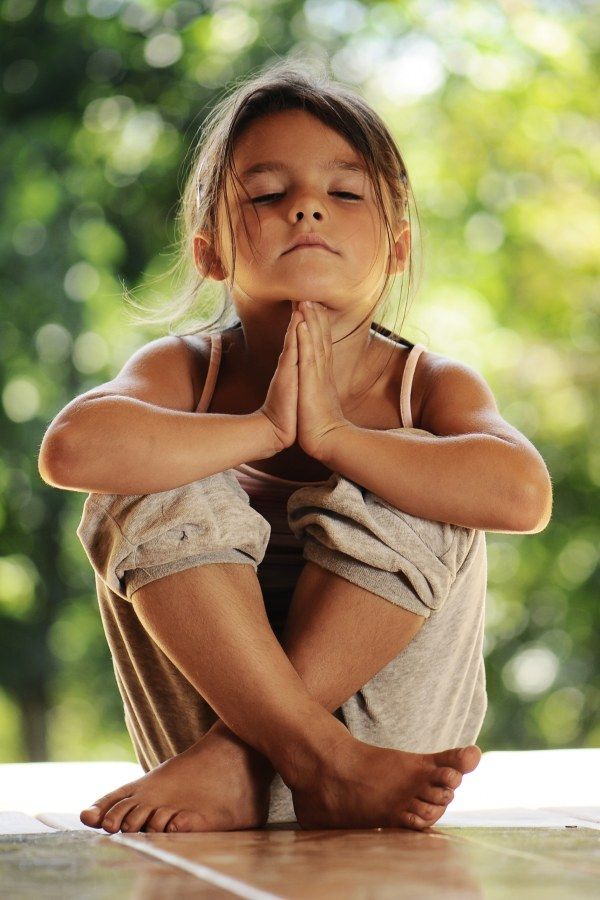
À partir de 12.50€/mois
Child care
00:03:34
Deep concentration
00:03:28
Sleeping cat
00:04:22
Yoga music
00:03:28
Sounds of nature
00:03:28
Positive thoughts
00:03:27
Stress relief
00:02:56
Quiet time
00:03:34
Internal balance
00:03:24
Sleep music
00:04:21
Quiet time
00:03:30
Calming nature
00:03:33
Good morning
00:03:01
Guided Meditations
00:03:27
Relaxation for children
00:03:48
Paradise Beach
00:03:28
Calming breath
00:03:48
Morning alarm
00:04:17
School events
00:03:39
Positive thinking
00:03:28
Peaceful sleep
00:03:28
Emotional intelligence
00:03:34
Ambient therapy music
00:03:30
Slow moments
00:03:32
Stress release
00:03:28
Anger management
00:04:24
Beautiful moment
00:02:54
Deep hypnosis
00:03:48
Relaxation meditation
00:02:54
Quiet sounds
00:03:28
Your browser does not support the audio element.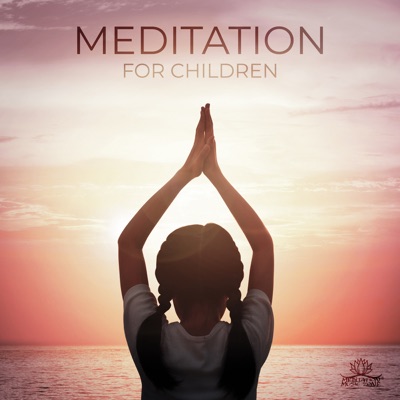
À propos
- 1 disque(s) - 30 piste(s)
- Durée totale : 01:47:01
2019 Rehegoo Music Edition 2019 Magical Journey Records
Ameliorer les informations de l'albumPourquoi acheter sur Qobuz ?
-
Streamez ou telechargez votre musique
Achetez un album ou une piste à l'unité. Ouécoutez tout notre catalogue en illimité avec nos abonnements de streaming en haute qualité.
-
Zero DRM
Les fichiers téléchargés vous appartiennent, sans aucune limite d'utilisation. Vous pouvez les telecharger autant de fois que vous souhaitez.
-
Choisissez le format qui vous convient
Vous disposez d'un large choix de formats pour télécharger vos achats (FLAC, ALAC, WAV, AIFF.
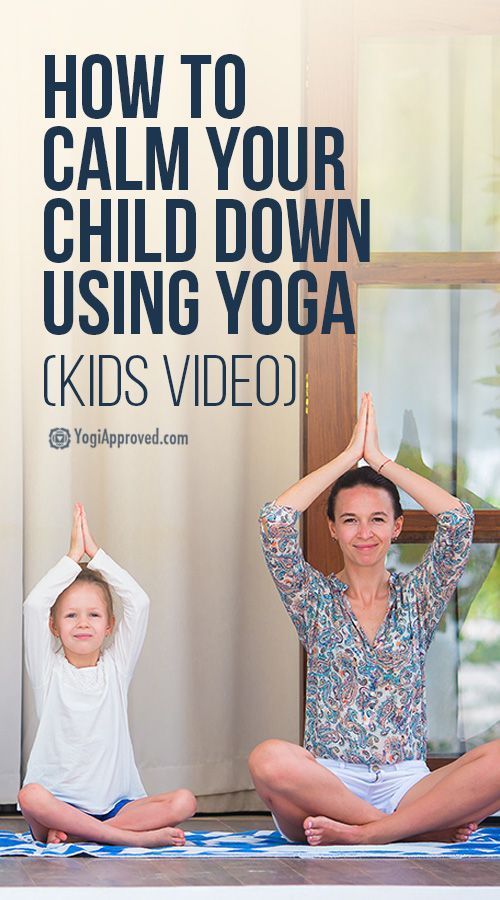 ..) en fonction de vos besoins.
..) en fonction de vos besoins. -
Ecoutez vos achats dans nos applications
Téléchargez les applications Qobuz pour smartphones, tablettes et ordinateurs, et écoutez vos achats partout avec vous.
Les promotions du moment...
Barn
Neil Young
Barn Neil Young
Harvest
Neil Young
Harvest Neil Young
Toast
Neil Young
Toast Neil Young
On the Beach
Neil Young
On the Beach Neil Young
A découvrir égalementPar Group of greater calmness
REM Sleep: Relaxing Sleep Music, Calm Sleep Time, Deep Sleep
More Calm Group
REM Sleep: Relaxing Sleep Music, Calm Sleep Time, Deep Sleep Greater Serenity Group
Asian Spa: Oriental Music for Massage, Harmony, Relaxation, Mental Healing
Greater Serenity Group
Asian Spa: Oriental Music for Massage, Harmony, Relaxation, Mental Healing Greater calmness group
432 Hz spa music for insomnia
Greater calmness group
432 Hz spa music for insomnia Greater Calm Group
Soothing Guitar and Piano
Greater Calm Group
Soothing Guitar and Piano Greater Calm Group
Spirit of Natural Harmony - Collection of New Age Calm Music for Relaxation, Meditation, Sleep or Study
Greater Calm Group
Spirit of Natural Harmony - Collection of New Age Calm Music for Relaxation, Meditation, Sleep or Study Greater Calm Group
Dans la meme thematique.